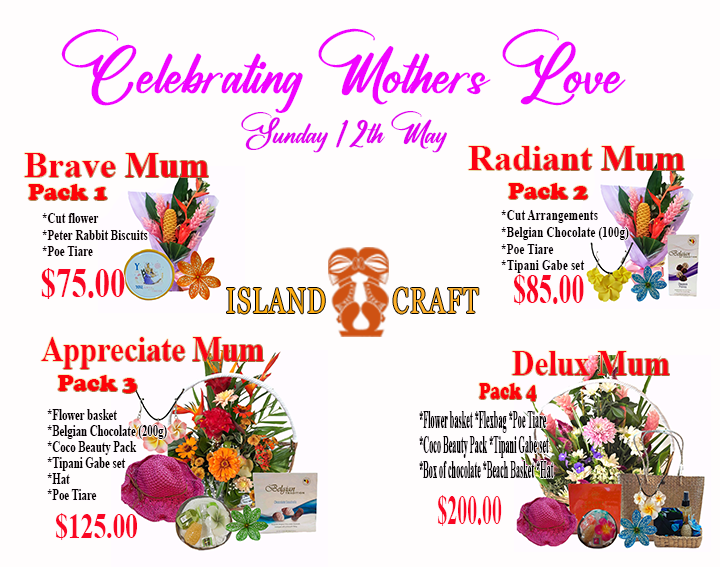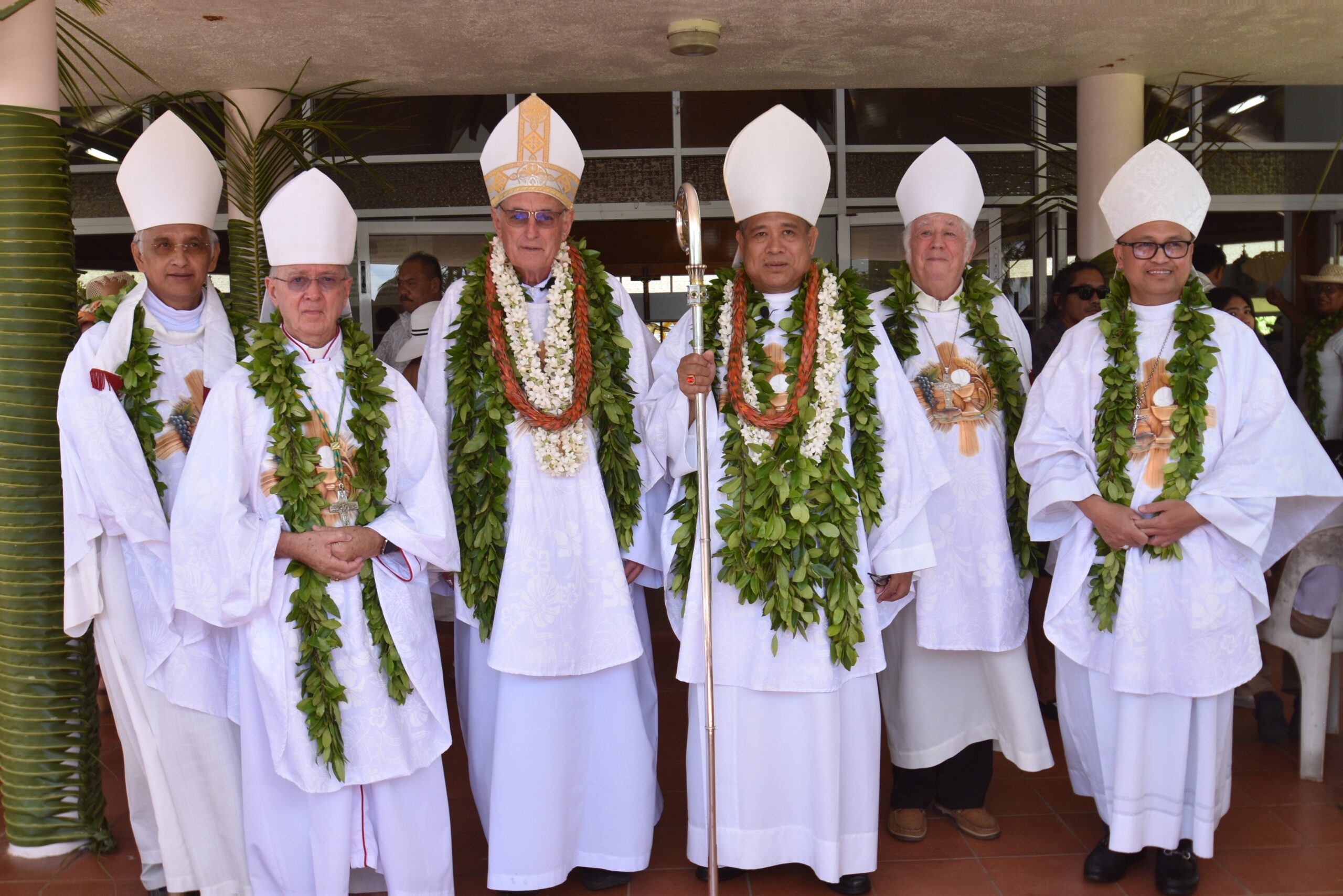Church talk: Living by faith
Friday 11 August 2023 | Written by Supplied | Published in Church Talk, Features

Elder Neil L. Anderson said “when faced with a trial of faith - whatever you do, you don’t step away …"
The scriptures teach us what faith is, and the prophets direct us in whom we should have faith. However, when we are faced with the challenges and trials of life, we can often question our faith and turn to rely solely on the wisdom of man, writes Tamatoa Jonassen of The Church of Jesus Christ of Latter-day Saints.
Elder Neil L. Anderson said “when faced with a trial of faith - whatever you do, you don’t step away … Distancing yourself from the kingdom of God during a trial of faith is like leaving the safety of a secure storm cellar just as the tornado comes into view”.
The Merriam-Webster dictionary defines faith as “belief and trust in and loyalty to God” or a “firm belief even in the absence of proof”. The scriptures further refine our understanding of faith as more than a mere conviction. Alma 32:21 states “Faith is not to have a perfect knowledge of things; therefore if ye have faith ye hope for things which are not seen, which are true.” Hebrews 11:1 reads “Faith is the substance of things hoped for, the evidence of things not seen.” For example, although we cannot see “wind” with our natural eyes, we can see the evidence of its existence in the gentle breeze or the raging storm.
Elder Joseph B. Wirthlin shared a Bible story that provides a contrast between faith and the wisdom of man. In a time of terrible famine, a widow and her son were getting ready to have their last meal. While many had perished from hunger, her own food supply had come down to a final meal for her and her son. It is then that a stranger approached and asked her the unthinkable.
“‘Bring me, I pray thee,’ he said to her, ‘a morsel of bread.’ The woman turned to the man and said, ‘As the Lord thy God liveth, I have not a cake, but a handful of meal in a barrel, and a little oil in a cruse.’ She told him she was about to prepare it as a last meal for herself and her son, ‘that we may eat it, and die.’ She did not know that the man before her was the prophet Elijah, sent to her by the Lord. What this prophet told her next may seem surprising to those today who do not understand the principle of faith. ‘Fear not,’ he said to her, ‘but make me thereof a little cake first, and bring it unto me, and after make for thee and for thy son.’ Can you imagine what she must have thought? What she must have felt? She hardly had time to reply when the man continued, ‘For thus saith the Lord God of Israel, The barrel of meal shall not waste, neither shall the cruse of oil fail, until the day that the Lord sendeth rain upon the earth.’ The woman, after hearing this prophetic promise, went in faith and did as Elijah had directed. ‘And she, and he, and her house, did eat many days. And the barrel of meal wasted not, neither did the cruse of oil fail, according to the word of the Lord, which he spake by Elijah.’” [1 Kings 17:11-16].
Elder Wirthlin continues: “In the wisdom of our day, the prophet’s request may seem unfair and selfish. In the wisdom of our day, the widow’s response may appear foolish and unwise. That is largely because we often learn to make decisions based upon what we see. We make decisions based on the evidence before us and what appears to be in our immediate best interest.‘Faith,’ on the other hand, ‘is the substance of things hoped for, the evidence of things not seen.’ [Hebrews 11:1]. Faith has eyes that penetrate the darkness, seeing into the light beyond. ‘Your faith should not stand in the wisdom of men, but in the power of God.’ [1 Corinthians 2:5].”
Today we tend to rely on our own ability to reason and solve problems rather than relying on faith. However, Romans 1:17 tells us that “The just shall live by faith.”
Elder Wirthlin teaches us that “Faith exists when absolute confidence in that which we cannot see combines with action that is in absolute conformity to the will of our Heavenly Father. Without all three – first, absolute confidence; second, action; and third, absolute conformity – without these three all we have is a counterfeit, a weak and watered-down faith.”
“First, we must have confidence in that which we cannot see. When Thomas finally felt the prints of the nails and thrust his hand into the side of the resurrected Saviour, he confessed that he, at last believed. ‘Jesus saith unto him, Thomas, because thou hast seen me, thou hast believed: blessed are they that have not seen, and yet have believed.’” [John 20:29].
“Second, for our faith to make a difference, we must act. We must do all that is in our power to change passive belief into active faith, for truly, ‘faith, if it hath not works, is dead.’” [James 2:17].
“Third, one’s faith should be consistent with the will of our Heavenly Father, including His laws of nature. The sparrow flying into the hurricane may believe that he can successfully navigate the storm, but the unforgiving natural law will convince him otherwise in the end. Are we wiser than the sparrow? Often what passes for faith in this world is little more than gullibility. It is distressing to see how eager some people are to embrace fads and theories while rejecting or giving less credence and attention to the everlasting principles of the gospel of Jesus Christ. It is distressing how eagerly some rush into foolish or unethical behaviour, believing that God will somehow deliver them from the inevitable tragic consequences of their actions. They even go so far as to ask for the blessings of heaven, knowing in their hearts that what they do is contrary to the will of our Father in Heaven.”
“How do we know when our faith conforms to the will of our Heavenly Father and He approves of that which we seek? We must know the word of God. One of the reasons we immerse ourselves in the scriptures is to know of Heavenly Father’s dealings with man from the beginning. If the desires of our heart are contrary to scripture, then we should not pursue them further.”
“Those who walk in faith will feel their lives encompassed with the light and blessings of heaven. They will understand and know things that others cannot. Those who do not walk in faith esteem the things of the Spirit as foolishness, for the things of the Spirit can only be discerned by the Spirit.”
1 Corinthians 2:14 reads: “But the natural man receiveth not the things of the Spirit of God: for they are foolishness unto him: neither can he know them, because they are spiritually discerned.”
Elder Andersen reminds us that “By definition, trials will be trying. There may be anguish, confusion, sleepless nights, and pillows wet with tears. But our trials need not be spiritually fatal. They need not take us from our covenants or from the household of God.
‘Remember, … it is upon the rock of our Redeemer, who is Christ, the Son of God, that ye must build your foundation; that when the devil shall send forth his mighty winds, yea, his shafts in the whirlwind, yea, when all his hail and his mighty storm shall beat upon you, it shall have no power over you to drag you down to the gulf of misery and endless wo, because of the rock upon which ye are built, which is a sure foundation, a foundation whereon if men build they cannot fall.’” [Helaman 5:12].
As we remain faithful during our trials, we will be spiritually strengthened and our homes can become havens of faith. May we learn to place greater trust in the Lord, study the teachings of all the prophets, and move forward in learning of and following the will of the Lord.
In the name of Jesus Christ, Amen.









































